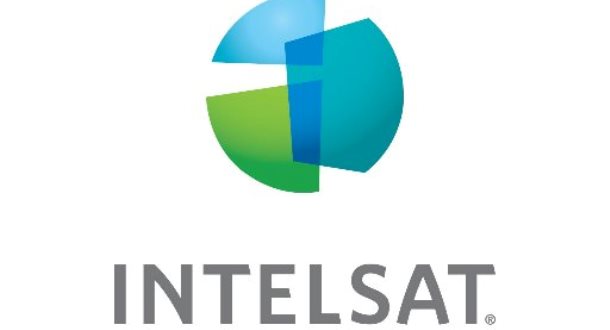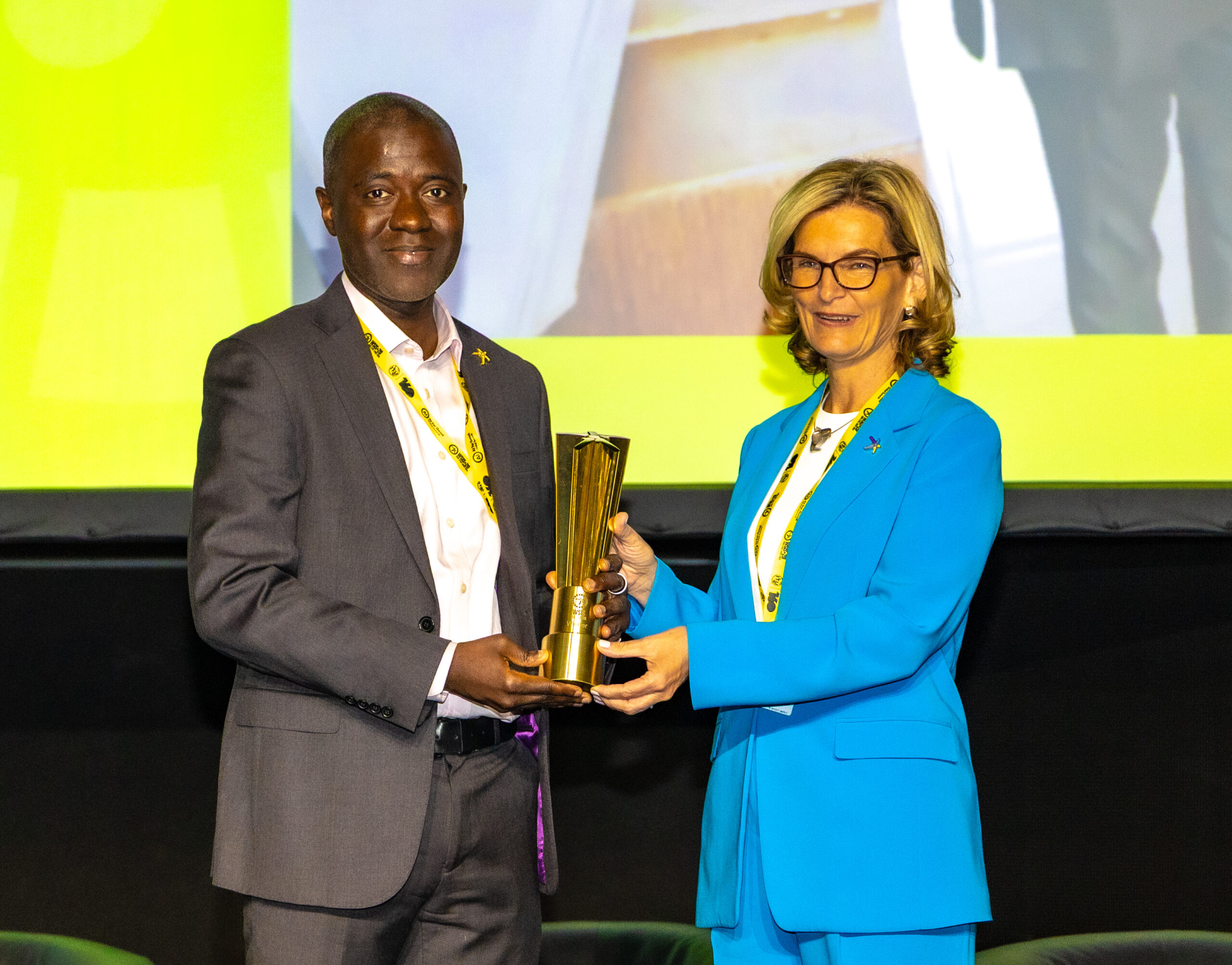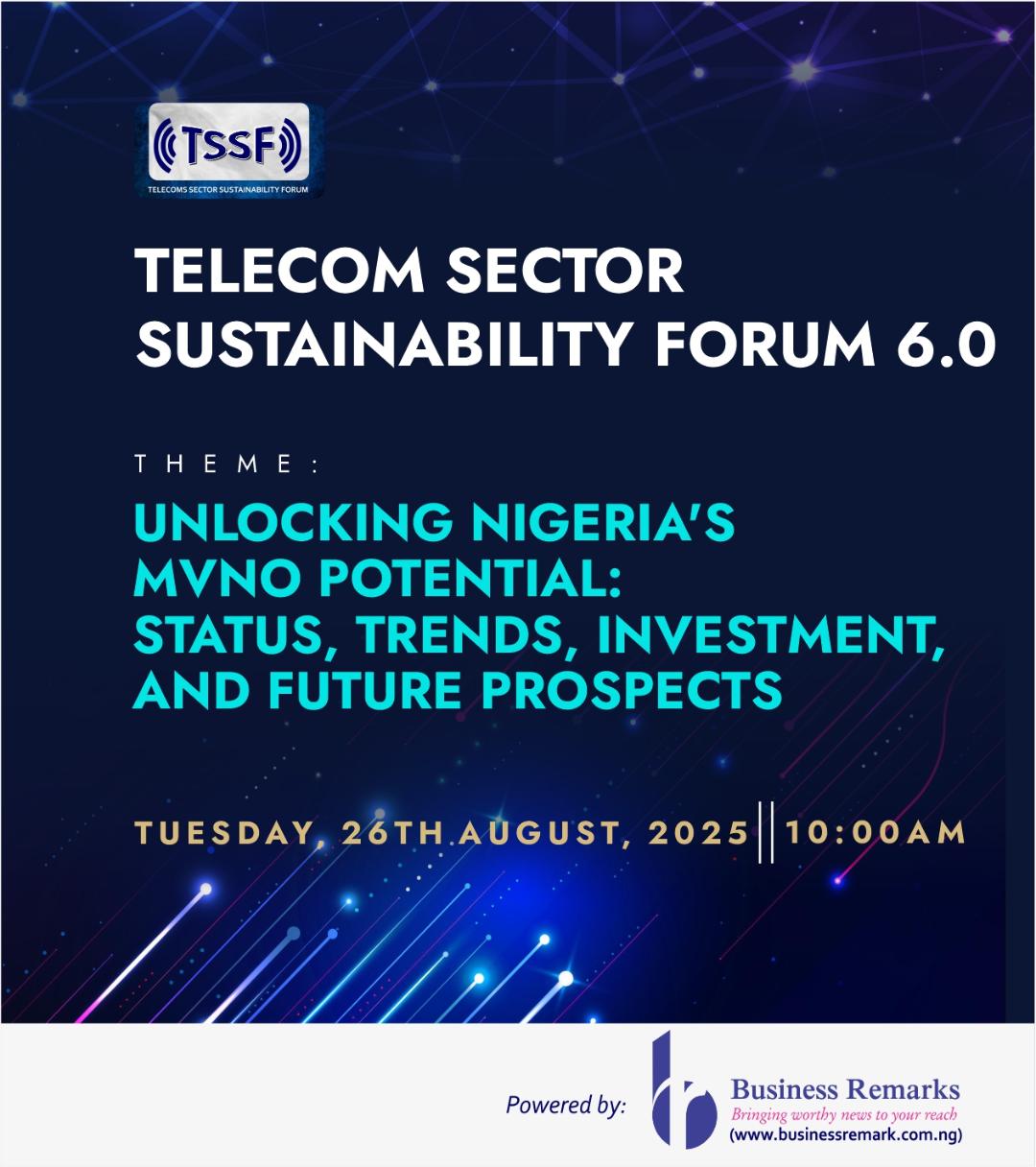Telecom
Intelsat Invests US$2bn into Unified Global 5G Network

Africa-focused satellite operator Intelsat is currently building a unified global 5G network the company says will support virtually any access technology, and enable the next generation of global mobility, IOT and 5G services.

The company believes while the continent relies heavily on 3G and 4G for connectivity, the role of 5G in the future African connectivity landscape is not in doubt, given the increased urgency for enhanced connectivity services for households and businesses.
Intelsat asserts that its hybrid, multi-orbit, software-defined 5G network will enable simple, seamless and secure coverage.
Hans Geldenhuys, Director, Africa Sales – Intelsat, explains: “Intelsat’s open architecture design which integrates multiple orbits supports virtually any access technology, while the multi-layer approach ensures no single point of failure in the system by creating redundancy – the assurance of continuous high level of service.
The construct of our network – cloud-based, fully virtualised, and software-defined – enables ground and space systems to interact seamlessly, no matter the orbit or band. Software-defined satellites provide ‘follow me’ capacity that dynamically allocates based on prevailing and predicted demand.
“The network enables frictionless connectivity with global roaming and easy integration with the growing 5G networks of the world, including common hardware platforms.”
To this end the company has confirmed that ten satellites, including two software-defined, are already in production and will complement its existing fleet of 52 satellites.
“… and we are also progressing in the design phase of all aspects of this network with our solutions partners,” Geldenhuys adds.
The company is mobilising this infrastructure to entrench its service and value proposition in the market – and more so because its leadership believes that 5G is inevitable and there is no doubt about its role in the future African connectivity landscape.
Geldenhuys continues, “5G is a catalyst for innovation and will give an opportunity to industry and service providers, communities, and individuals to advance their digital agendas towards economic growth, job creation and socio-economic development. However, it is likely that the mobile technology that will dominate in Africa for the foreseeable future will be 4G.”
Intelsat adds that according to the GSMA, 5G in Africa will only account for 3% for all connections in 2025, while 4G will continue to grow to 27%.
To make 5G successful, it will be essential for all stakeholders to put in place the necessary building blocks to maximise the opportunity that the technology can bring, the company says.
Satellite support for 5G
Intelsat is also confident of its strength in satellite infrastructure services and underlines the value of this technology in supporting 5G development on the continent – particularly in terms of extending connectivity to rural areas.
The company says for 5G networks, satellites will play an even more important role as operators will rely on their ubiquity and resiliency to ensure end-users have access to a broad range of applications, including in remote and rural areas – and even in airplanes or on ships.
Geldenhuys adds, “Satellites gives the opportunity to offer vastly enhanced and faster broadband connectivity with additional backhaul, creating redundancies, and providing remote and rural areas with greater connectivity.
Satellite will complement terrestrial networks in underserved areas for homes and businesses, or to enterprise sites as a backup. As you move to more rural and remote areas, only satellite communication has the potential to provide reliable coverage and sufficient data density.
“As the number, uses, and requirements of connectivity continue to evolve, so does the importance of extending the promise of 5G networks beyond the urban and densely networked communities.”
The company says that with the majority of the population on the continent living in rural areas where voice traffic still runs over 2G networks and devices on 2G mode, it will be difficult to skip 4G and migrate to 5G without, first, taking steps to migrate 2G/3G voice to VoLTE (Voice over LTE) over 4G networks.
In the short- to medium-term, governments and the mobile industry will, therefore, need to focus on efforts to increase 4G adoption among mobile users. This will involve strategies to make 4G devices more affordable and provide relevant digital content to drive demand for enhanced connectivity services, Intelsat states.
Geldenhuys adds, “5G will be a primary use case and provide significant opportunities to enterprises of all sizes, given the challenges around access, cost and reliability of existing connectivity services.
However, the cost of 5G devices will play a crucial role in 5G adoption rates for consumers in Africa, where smartphone affordability is a significant barrier to mobile access and ownership.
“We have long advocated for the integration of standards across the telecommunications ecosystem, which are now making it even easier to integrate satellites into new and innovative connectivity solutions.
“As mentioned, at Intelsat, we’re building an advanced network – aligned with these standards – that can support multiple access technologies, and ultimately make it easier for companies, governments, and communities around the world to connect and power their digital future.
“Our unparalleled unifying network will set the standard in 5G connectivity and uninterrupted global broadband service with unrivalled coverage, economics, and performance.”
The issue of spectrum
Intelsat suggests that for 5G to be fully realised, terrestrial telecommunications systems will not be enough.
“We will need to move to an integrated 5G ‘network of networks’ where satellites play an increasing role, alongside terrestrial networks and Intelsat has, for instance, been working on 3GPP standards.
When looking at spectrum bands, a balanced way of thinking is needed to cater for wider geographic areas and ultra-high-speed capacity with low latencies. Mid-band spectrum (i.e., C band) is still required by satellite services as a robust transmission for Africa and there is a real need to protect these services and enable regulatory certainty for their future,” Geldenhuys adds.
The company believes that regulators and policymakers have an important role to ensure that the mobile industry and 5G are major catalysts in speeding up the digitalisation of the continent. But it must be done in a balanced way which does not impact other services such as FSS. So, adding more spectrum is not the answer to the coverage challenges.
“In order to bridge the digital divide, regulators need to cater for a balanced approach. One that takes care of all technologies and allows them to grow to meet the 21st century connection challenge for Africa,” says Geldenhuys.
The company suggests that more needs to be done to raise end user awareness of the breadth of 5G use cases and areas of application. To accelerate the adoption, end-users must see the value of the technology.
Telecom
NCC Wins Global ICT Award for Digital Awareness in Schools

Nigeria, through the Nigerian Communications Commission (NCC), has won the 2025 World Summit on the Information Society (WSIS) prize for its project, the Digital Awareness Programme (DAP), under Category C3, which is on Access to Information and Knowledge.

L–R: Executive Vice Chairman/CEO of the Nigerian Communications Commission (NCC), Dr. Aminu Maida, receives the WSIS 2025 Prize (Category C3: Access to Information and Knowledge) from the Secretary-General of the International Telecommunication Union (ITU), Doreen Bogdan-Martin, following the selection of the Commission’s Digital Awareness Programme (DAP) as winner of the category.
The DAP, one of hundreds of projects submitted for the WSIS Prizes competition 2025, received the highest number of votes in its category, earning it the top honour. The programme equips secondary schools across the country with Information and Communication Technology (ICT) resources and provide internet connectivity to support teaching, learning, and research. Since inception in 2006, over 300 schools across Nigeria’s six geopolitical zones have benefitted from the programme.
The Executive Vice Chairman of the NCC, Dr. Aminu Maida, received the award during the WSIS Prizes Winners 2025 Ceremony held on Monday in Geneva, Switzerland.
In his acceptance remarks, Dr. Maida thanked the hosts, the International Telecommunications Union (ITU) and WSIS, for recognising Nigeria’s efforts in promoting inclusive digital access across Nigeria, noting that the award would serve as further motivation for the Commission.
“This recognition is more than a celebration of past efforts—it is an encouragement to press forward. It affirms that investing in digital inclusion is investing in national development, and that Nigeria’s work is being seen and valued on the global stage,” Dr. Maida said.
Four other Nigerian projects—the Women Techsters and the Advanced Digital Empowerment Programme for Tertiary Institutions (ADEPTI) under Capacity Building, the Telecom-Based Research Grant Initiative under Enabling Environment, and the Digital Learning Initiative under e-Learning—were also celebrated for their nomination for the Champions Category of Projects at the WSIS Prizes Ceremony. Although they were not among the top-voted entries, they were acknowledged for their significant merit and impact.
The WSIS Prizes competition recognises and promotes projects that effectively leverage ICTs to advance sustainable development. The competition showcases how technology can serve as a powerful tool for addressing global challenges and achieving the SDGs. Projects from around the world are recognised annually, highlighting diverse approaches to building an inclusive information society.
The World Summit on the Information Society (WSIS) is a United Nations (UN) initiative aimed at building a people-centred, inclusive, and development-oriented information society. It provides a multi-stakeholder platform to address issues related to Information and Communication Technologies (ICTs) and their role in achieving sustainable development.
The Forum is an annual event that brings together high-level representatives from governments, the private sector, civil society, academia, the technical community, and international organisations. It serves as a global platform for implementing the WSIS Action Lines, which are aligned with the UN Sustainable Development Goals (SDGs).
Telecom
No More Excuses: NCC Sets Tough August Deadline to Tackle Telecom Hitches

Nigerian Communications Commission (NCC) has given telecom tower operators in the country August 2025 deadline to fix persistent network hitches in their facilities or face regulatory sanctions.

The Executive Vice Chairman (EVC) of the commission, Dr. Aminu Maida, reportedly gave the ultimatum during a high-level meeting with key industry players, attended by representatives of IHS Towers, American Tower Corporation (ATC), and Pan-African Towers, and mobile network operators (MNOs) in Abuja
According to sources, discussions at the meeting focused on the recurring challenges in the telecoms sector, particularly power failures, equipment malfunctions, and insufficient site maintenance, that have been causing poor Internet and call services in the country
Specifically, Maida tasked the tower operators on the imperative of complying with the NCC’s updated Quality of Service (QoS) framework, which now extends performance obligations to infrastructure providers, not just telecom service providers.
According to him, the timeline given by the commission is more than enough time for all parties to align with the performance standards expected of them.
Recently, to ensure compliance with the standards, the NCC introduced a Major Incident Reporting Portal for real-time outage disclosures; developed public performance dashboards to enhance transparency; mandated that telecom tower companies meet strict Key Performance Indicators (KPIs).
Although the tower operators had previously cited delayed payments from MNOs as a reason for service lapses, the NCC had dismissed the justification, insisting that all parties must meet their obligations.
The EVC maintained: “Operators must fulfill both their technical and financial responsibilities. Poor service delivery—regardless of internal disputes—will attract consequences.”
Available data on the telecom tower infrastructure shows that IHS Towers has the largest assets with 16,000–19,000 sites, (62% market share); compared to American Tower Corp’s (ATC’s) about 8,270 towers; and Pan-African Towers’ 760–1,000 sites nationwide.
The latest NCC’s August deadline is believed to be putting pressures on the tower operators to improve the quality of their facilities for improved services as the commission had hinted of its plan to sanction defaulting operators with fines or stricter regulatory actions.
Industry experts believe that the NCC’s directive is a welcomed development as it will ensure reliable Internet connectivity and improved services quality for telecom consumers in the country.
Telecom
NCC to Chart MVNO Growth Path at Telecom Sustainability Forum 6.0

Nigerian Communications Commission (NCC) is set to play a pivotal role at the upcoming 6th edition of the Telecom Sector Sustainability Forum (TSSF 6.0), where it will lead a critical discussion on the sustainable growth of Mobile Virtual Network Operators (MVNOs) in Nigeria.

Set against a backdrop of innovation and opportunity, this forum, organized by Business Remarks, aptly themed “Unlocking Nigeria’s MVNO Potential: Status, Trends, Investment, and Future Prospects,” is scheduled for August 26, 2025. This event reinforces the nation’s commitment to fostering a robust, competitive, and inclusive telecommunications landscape.
The forum will bring together a diverse array of key stakeholders from across the telecom ecosystem to deliberate on strategies for integrating MVNOs effectively into Nigeria’s rapidly evolving digital economy. With the recent advancements in technology and the issuance of 43 MVNO licenses to new players, MVNOs are poised to significantly enhance service delivery, drive digital transformation, penetrate underserved markets, and stimulate healthy competition across the sector.
As the global MVNO market is experiencing significant growth, with projections indicating continued expansion, experts believe that with the right regulatory environment and access to infrastructure, emerging markets like Nigeria can leverage MVNOs to unlock new value for both operators (by utilizing excess network capacity) and customers. Customers can enjoy a rich array of niche value-added services tailored to their needs.
Having been proactive in introducing a five-tier MVNO licensing classification, each with distinct services and a 10-year validity period, signaling a clear path for new entrants, the telecom regulator (NCC) will deliver a keynote address outlining the Commission’s regulatory framework, interventions, and commitment to ensuring a conducive environment for MVNO operations.
Mrs. Bukola Olanrewaju, Convener of the forum and Managing Editor of Business Remarks, emphasized the importance of collaboration. “TSSF 6.0 is designed to be a melting pot of ideas, bringing together Mobile Network Operators (MNOs), MVNOs, telecoms infrastructure providers, Internet Service Providers, industry associations, and technology experts,” she said.
“Our goal is to ignite discussions that will shape the future of MVNOs in Nigeria, ensuring their sustainable growth and their critical role in extending digital prosperity across the nation.”
The forum will feature interactive sessions, thought-provoking panel discussions, insightful paper presentations, and abundant networking opportunities. This event aims to provide a platform for stakeholders to share insights, address challenges, and explore collaborative pathways for sustainable growth.

 Telecom1 day ago
Telecom1 day agoY’ello Care’s 21-Day Campaign Bridges Digital Divide for Thousands Nationwide

 General News1 day ago
General News1 day agoEnugu Air Commences Operations Today

 E-Business1 day ago
E-Business1 day agoGalaxy Backbone, Rural Electrification Agency Commit to Deepening Digital and Energy Access Across Nigeria

 Broadcasting1 day ago
Broadcasting1 day agoNDPC Slaps Multichoice with ₦766M Fine for Data Privacy Violations

 News1 day ago
News1 day agoLagos-Calabar Highway Gets $100M Push from ECOWAS to Drive Regional Growth

 Telecom1 day ago
Telecom1 day ago20 Years of Digital Leadership: Layer3’s Legacy and the Road Ahead

 News1 day ago
News1 day agoNBS May Release Rebased Figures for Nigerian Economy July 11

 E-Financial2 hours ago
E-Financial2 hours agoAscensia Finance Commences Operations in Abuja



























